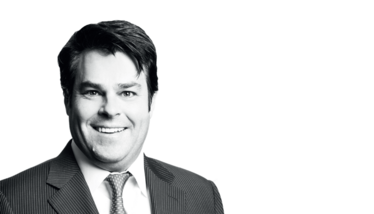The Value of Dogged Determination
How companies can strengthen their supply chains when presented with unprecedented challenges
Banks Bourne |

Our industry’s supply chains have been subjected to unprecedented headwinds in the last two years. Drug/vaccine developers and manufacturers must constantly be alert to potential disruptions and proactively find ways to prevent, or at least minimize, delays in the availability of raw materials and technologies needed to produce medicines for patients around the world.
But supply chains aren’t just about procuring raw materials. We also need to get the final drug product to the patient. Whether due to bureaucratic red tape, logistical roadblocks, or a lack of communication among stakeholders, medications that cannot physically get to the patient are of no benefit. And though various types of regulatory-approved access programs allow patients to get medicines in geographies where they aren’t commercially available, success relies on the willingness and cooperation of many stakeholders, the ability to navigate complicated supply chains, or, in some cases, the need to create new supply pathways where none currently exist.
Undoubtedly, the pandemic reinforced the benefit of having proven, foundational operating principles that could be relied upon when facing not only access challenges but supply chain issues of all types. To minimize the effects of future disruptions, companies will have to consider how they will continue to reimagine and strengthen their supply chains.
In my view, focusing on relationship building with like-minded organizations is one of the most important factors for continued improvement. At Tanner Pharma, we had an existing relationship with a company in Bolivia that handled the “last-mile” logistics for a cancer drug being shipped from Switzerland; their role was to ensure timely and safe delivery to several institutes in different cities. Due to the worsening political and economic climate in the country, however, the company shut down operations. This company connected us to another that had good standing in Bolivia and was willing to work with us on a no-cost basis. They would receive the medication, break the shipment down, and deliver it for free because they believed in what we were doing and recognized the need faced by patients and physicians. Discussions with this new partner established confidence in their ability and commitment to the program, and formed the basis for a trusting relationship.
The situation highlighted the importance of developing robust relationships grounded in a common mission. Building good, robust relationships during the pandemic has been challenging because of reduced travel and limited opportunities for face-to-face interactions. But organizations should not be deterred by these constraints; it is important to seek creative ways to understand the mindset of potential partners and to get relationships in place before the next crisis strikes. You also need to have contingency plans. Early in the pandemic, a US-based pharmaceutical company we worked with needed to get a drug product to Belgium for a clinical trial where it would be evaluated as a potential COVID-19 therapeutic. At the time, it was unclear what impact the pandemic would have on air transport. Given this uncertainty, and the need to ensure supply for the trial, we made the decision to pre-position stocks with partners in the UK and Germany to avoid exposing the trial to risk from a possible shutdown of US airports. Again, having pre-existing relationships with these trusted partners was critical. Though it is impossible to envision all contingencies, considering what might lie ahead enables organizations to remain flexible as events unfold.
Finally, I would like to emphasize the importance of having the determination and courage not to take “no” for an answer! Consider the case of a prominent non-governmental organization (NGO) that needed to move medical supplies and medicines from China into a remote region of Kazakhstan – more than 1200 kilometers from the capital. The initial request for supplies and a grant to the NGO had come from a multinational corporation that wanted to provide protection for its employees. Airports were closed. Rail options were deemed to be insufficiently secure. Despite these obstacles, we were able to identify an air freight partner and negotiate with the government to have the airport reopened. Our team also worked to ensure customs officials were available to receive the shipment and arranged for road transportation from known and trusted freight forwarders. The lesson here is that there must be a desire to battle any obstacle and a corporate culture that supports and encourages the relentless pursuit of solutions.
The COVID-19 pandemic will have a lasting impact on the industry. Hopefully, more than a little of its impact will be positive, leaving us better prepared for what the future might hold.
Founder and CEO of Tanner Pharma Group and Bourne Partners



















